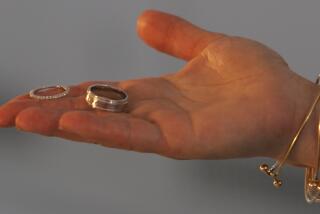‘90s FAMILY : New York Enacts Tough Breast-Feeding Protections
- Share via
It’s a crime to try to prevent a mother from breast-feeding in public under a civil rights measure signed last week that gives New York the toughest such law in the nation.
The law allows nursing in malls, restaurants and other public places, even if the breast and nipple are exposed. The measure imposes fines up to $5,000 or prison sentences up to five years for anyone who illegally prevents breast-feeding in public.
The law gives nursing mothers the strongest protection in the country, said Elizabeth Baldwin, a lawyer with the La Leche League, a group that promotes breast-feeding.
“Now, if anyone bothers us, we can say, ‘Listen, we are protected by law here. . . . You have no right to infringe on what’s happening between me and my child,’ ” said Liza Habiby, who added that she was ordered out of a mall in suburban Albany last year for breast-feeding.
Take Your Love Out to the Ballgame--and Propose?
Agrowing number of romantics are eschewing candelight-dinner marriage proposals in favor of giant electronic messages at big-league baseball games. At least 11 of the 28 teams--but not the Dodgers or the Angels--offer the service, most charging a fee that is donated to charity. Nearly 70 couples got engaged at Yankee Stadium last season.
Some teams limit use of their message boards to birthday, anniversary and public-service announcements, reserving remaining time for sponsors. But the Cincinnati Reds prohibit video-screen proposals on principle. “It’s the philosophy of the club that a commitment of that type is a very personal and romantic thing and should not be trivialized by some kind of public display,” said Chip Baker, the club’s director of marketing. “It should be a thoughtful, romantic expression.”
Higher-Paid Women Get More Benefits
Highly compensated female workers are more likely to receive family-related benefits than their lower-paid counterparts, a new paper by Nancy Saltford of Cornell University concludes.
The research shows that women who receive family-related benefits are usually professionals who earn more than $35,000 per year. The fewest family benefits went to women earning less than $10,000 per year. Saltford also found that college-educated women were three times as likely to be offered benefits as those with less than a high school diploma.
More to Read
Sign up for Essential California
The most important California stories and recommendations in your inbox every morning.
You may occasionally receive promotional content from the Los Angeles Times.













